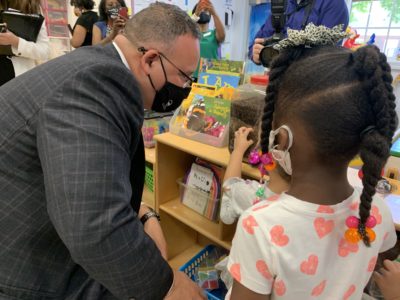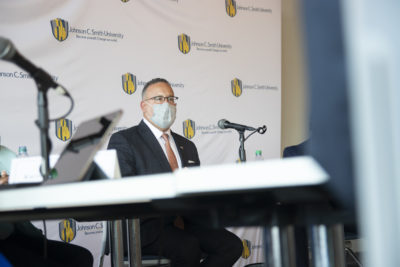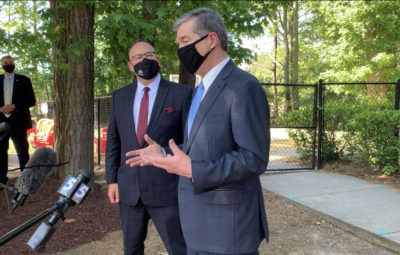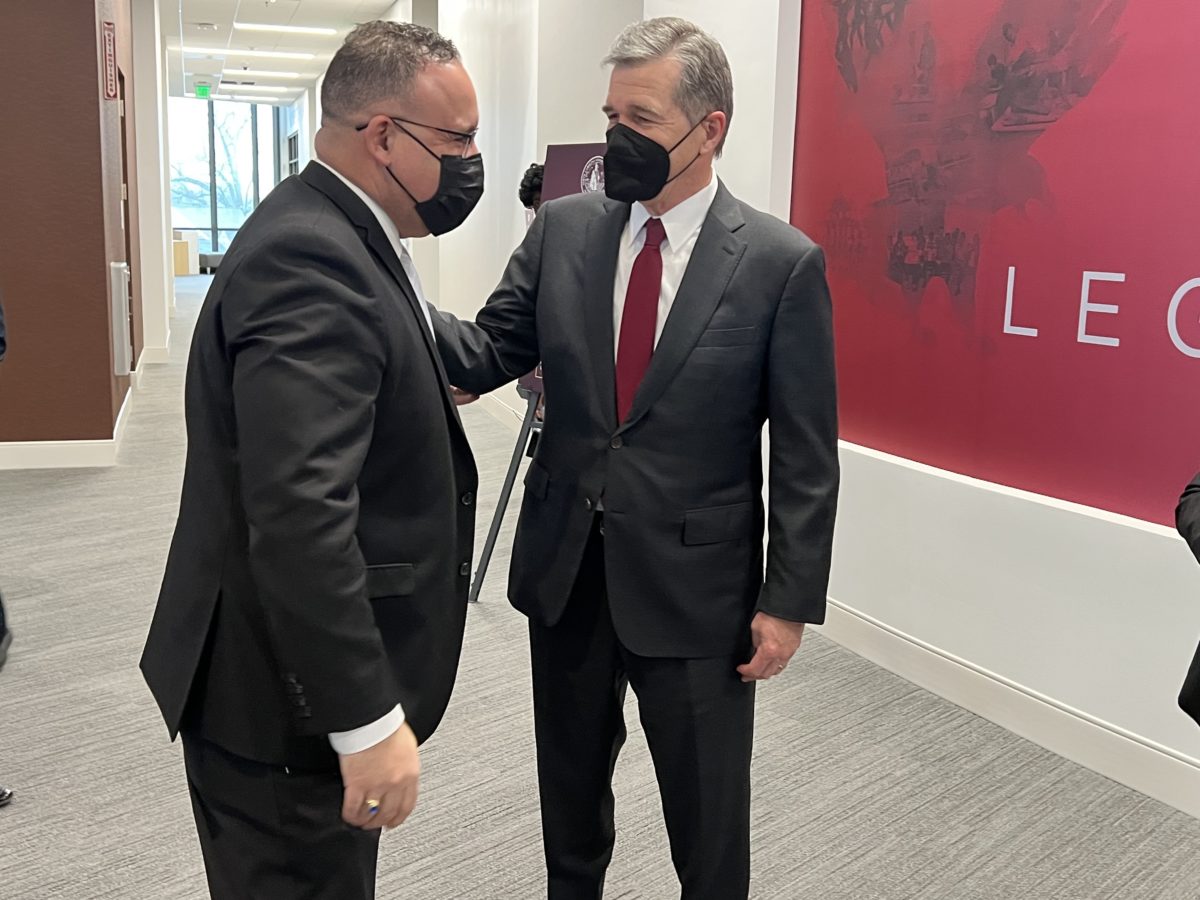

|
|
North Carolina Central University (NCCU) is a national model for building systemic support to address student mental health, according to the nation’s top education official.
U.S. Secretary of Education Miguel Cardona highlighted NCCU’s mental health services during a visit he made with Gov. Roy Cooper to the Durham campus on Wednesday. Cardona heard presentations from faculty in the student affairs division and sat in on a closed roundtable where he heard directly from eight students.
“What I saw here today at North Carolina Central, and what I heard from the students, gives me great hope in where we’re going and education across the country,” Cardona said. “This is a model of what we want to see across the country where we put actions and systems in place to support the emotional wellness of our students — to support access to mental health support that they need to thrive. Not just to come back, but to thrive.”
Studies nationwide show growing concern over student mental health, including a recent UNC-Chapel Hill study that followed the same group of first-year college students before and after the pandemic. That study showed a 40% increase in moderate to severe anxiety for first-year students and an 89% growth in incidence of depression for Black students.
“Black communities and communities of color are disproportionately impacted,” said Angela Coleman, NCCU’s vice chancellor for student affairs. “Oftentimes, historically, our Black communities [and] communities of color were not at the forefront of the conversation.”
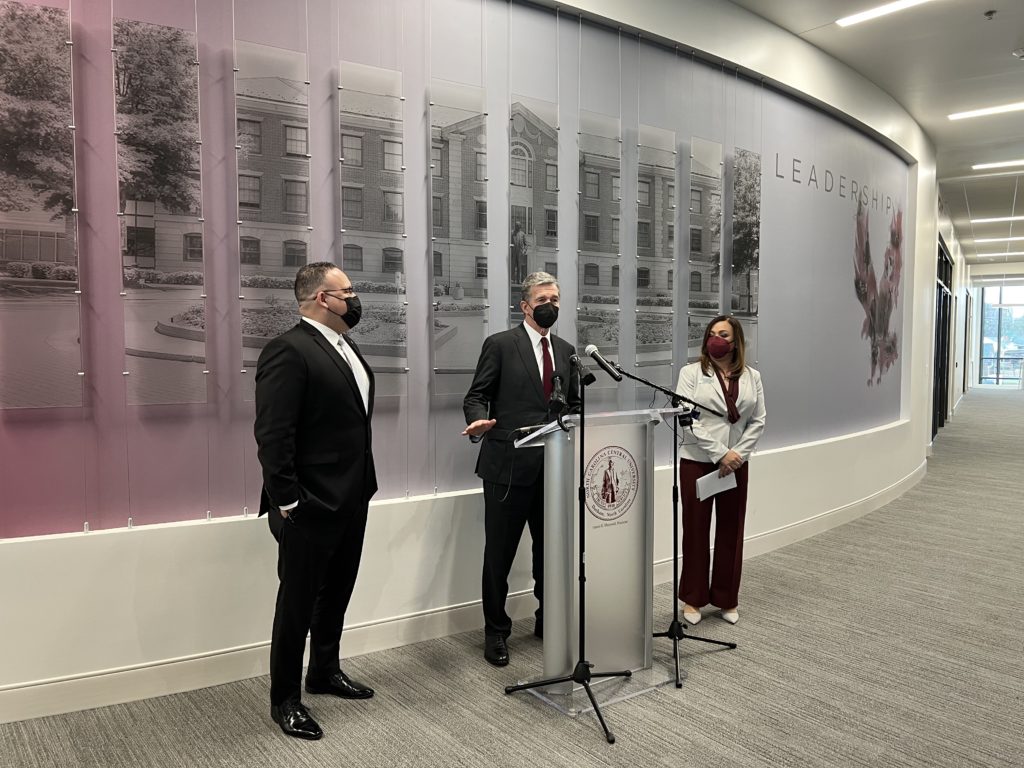

Coleman said she and her team were excited that Cardona wanted to visit, and they were eager to show off their student health and wellness (SHAW) initiative.
“I have the privilege of leading a division that provides innovative and, I would say, cutting-edge services to our students,” Coleman said, “We have definitely put our student health and wellness area and those services at the forefront in terms of working with our students, and just provide them with the services they need from a holistic and integrated perspective.”
NCCU says its approach is distinctive in breadth of services — from prevention to tertiary intervention — as well as its holistic and inclusive approach. In addition to responsive programs, the university is focused on preventative care and creating inclusive community spaces where students find belonging.
It has used federal relief funding to increase mental health training for faculty and is now training students for peer-to-peer support. NCCU has also used the federal aid to eliminate conditions that cause mental health issues. For example, it cleared more than $10 million in outstanding tuition and fees and waived costs for its summer session for more than 5,200 students last year.
“We’re here to support the holistic well-being of students,” said Micah Griffin, the assistant vice chancellor of health and wellness. “That way, they can be successful while they are here but also we instill in them health-seeking behaviors so well after they graduate they’re still making more informed decisions.”
Cooper said that he’s seen the need for these types of supports during his travels across the state. Wearing NCCU colors on his tie and socks, he said he was proud of the response he saw at the university.
“We know that young people often struggle with mental health issues, and particularly students who are facing the pressure of academics, the pressure of socialization away from home, the pressure of sometimes part time work, the pressure of student loans,” Cooper said. “And now you lay over top of that the pressure of this pandemic. It has been challenging for the students.”
University leaders said much of the initiative predated the pandemic, but the past two years have underscored the need for these services — as well as building out telehealth opportunities and providing inclusive spaces where students can gather in community with one another.
Griffin added that NCCU’s role in this effort, as one of North Carolina’s 10 accredited HBCUs, is important, “especially since we serve mostly African American students and, as you know, that demographic has some of the worst health outcomes.”
Cardona’s visit comes amid an increase in threats of violence toward HBCUs. Last month, NCCU was one of many HBCUs nationwide to receive a bomb threat. This week, vandals defaced a sidewalk mural at Shaw University honoring Black lives by painting over it with the name of a white nationalist group.
Cardona said NCCU’s services are an example of what he hopes to see nationwide.
“As a parent, there’s nothing more that I would want for my own children,” he said.



